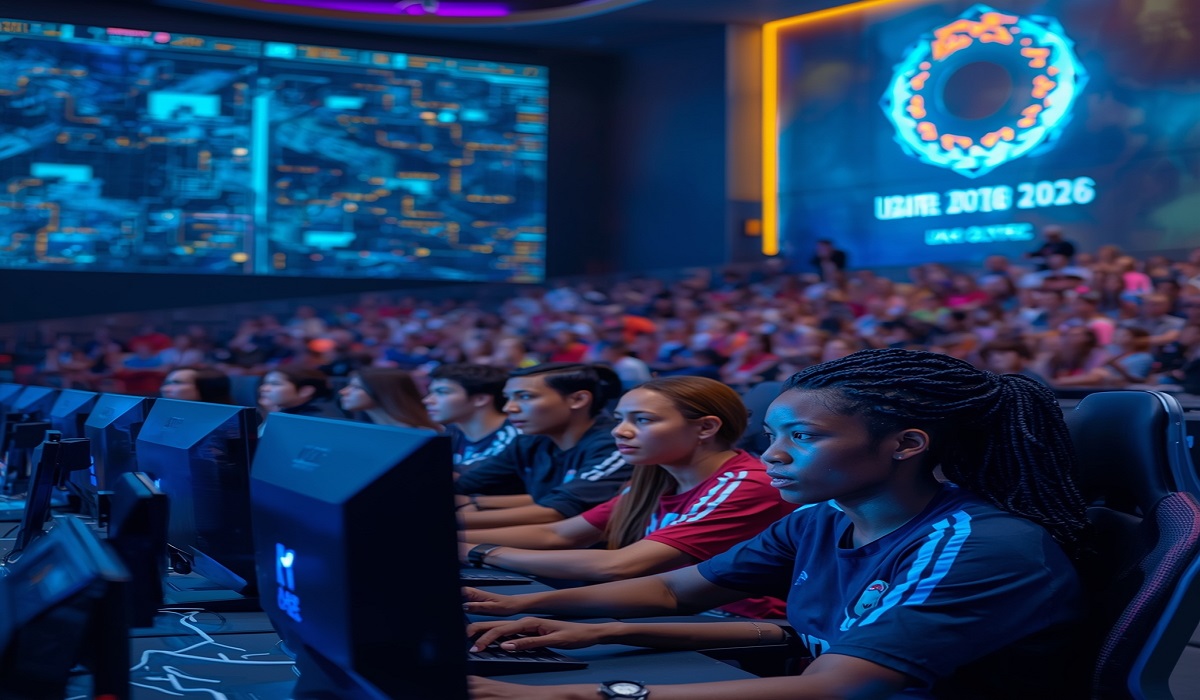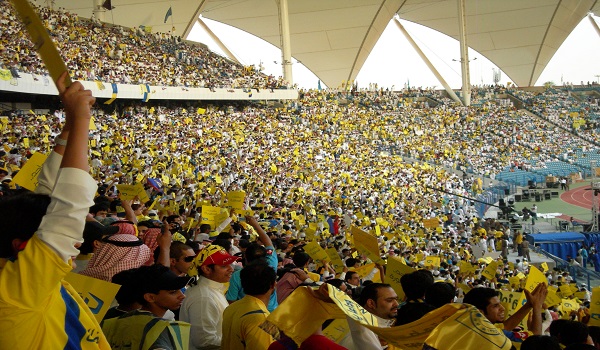Quantum computing for real-time game strategy
Quantum computing for real-time game strategy: The 2026 Uaire Olympic is not a contest of physical strength. It is a global tournament featuring the most complex strategy games ever created. Players from around the world will compete in digital arenas where every decision matters. These games change and react in real-time, making them too difficult for traditional computers to manage fairly. This is where a new kind of technology enters the scene.
The use of quantum computing for real-time game strategy in the 2026 Uaire Olympic will create a completely new experience for players and fans. This technology will build game worlds that feel alive and think for themselves. It represents a significant step forward in how we interact with digital environments, making the games in the 2026 Uaire Olympic more dynamic and unpredictable than any before.
What Makes a Quantum Computer Different?
A regular computer, like the one in your phone or laptop, uses bits. A bit is like a simple light switch; it can only be either “on” (a 1) or “off” (a 0). Every piece of information, from a simple number to a full game character, is built from these on-and-off switches.
Quantum computers use quantum bits, or “qubits.” A qubit is like a special dial that can be on, off, or both at the same time. This ability to be in multiple states simultaneously is called “superposition.” It lets a quantum computer explore many different possibilities all at once.
This difference is crucial for the 2026 Uaire Olympic. Imagine a game where a player has one thousand possible moves. A classical computer must check each option one by one, which can be slow. A quantum computer can examine many of those potential moves simultaneously.
This power is what makes quantum computing for real-time game strategy a revolutionary idea. It can handle the immense number of variables in these advanced games, ensuring the action flows smoothly without delays or unfair advantages from processing limitations.
- Traditional Computers: Work with bits (0 or 1). They solve problems step-by-step.
- Quantum Computers: Work with qubits (0, 1, or both). They can solve complex problems with many variables much faster.
Building the Game World for the 2026 Uaire Olympic
The games in the 2026 Uaire Olympic will be set in vast, detailed worlds. Every tree, building, and non-player character (NPC) will operate by its own set of rules. For a classical computer, managing all these independent elements in real-time is a huge challenge.
Often, to keep the game running smoothly, developers must simplify the world, making NPCs behave in predictable, repetitive ways. The integration of quantum computing for real-time game strategy directly addresses this limitation.
With a quantum computer managing the game environment, every part of the world can be truly dynamic. Weather patterns will form based on complex scientific models. NPC civilizations will grow, trade, and make decisions based on their own simulated needs and the players’ actions. The game world will no longer be a static backdrop but a living, breathing entity.
This creates a fair and deeply engaging playground for the quantum computing for real-time game strategy in the 2026 Uaire Olympic. No two play sessions will ever be identical, rewarding players who can adapt and think creatively.
How Quantum Computing Changes Game Strategy?
Strategy in most current games relies on learning patterns and practicing until your reactions become automatic. The 2026 Uaire Olympic games will break this model. Because the game world is so dynamic, memorizing patterns will be useless.
Opponents, both AI and human, will have access to tools powered by quantum computing for real-time game strategy. This means they can assess the game state in profoundly new ways, considering possibilities a human brain might miss.
A player might use a quantum-assisted strategy tool to evaluate their next move. The tool could simulate dozens of potential outcomes based on the current world state, the opponent’s known tactics, and even random world events. It won’t tell the player what to do, but it will present a range of probable consequences for each action.
This elevates strategy from simple reaction to thoughtful prediction. Success in the 2026 Uaire Olympic will depend on a player’s ability to interpret this complex data, trust their instincts, and make bold decisions under pressure. The player and their quantum tools become a team.
Creating Fair Play with Advanced Technology
Whenever new technology appears, ensuring everyone has a fair chance to win is critical. The organizers of the 2026 Uaire Olympic are deeply focused on this. They will not give any player their own personal quantum computer.
That would be impractical and unfair. Instead, the quantum computing for real-time game strategy will be handled “on the cloud.” This means powerful quantum computers located in secure data centers will do the heavy lifting. Every player connects to this same system through the internet.
The games will be designed so that all competitors have equal access to the quantum-assisted tools. The interface for these tools will be the same for everyone, much like how all players in a soccer game use the same type of ball.
The challenge lies in how each person uses the available information. This system ensures that the focus of the 2026 Uaire Olympic remains on player skill, creativity, and strategic thinking, not on who has the better machine. It creates a level playing field powered by shared, advanced technology.
The Role of the Player in a Quantum Game World
Some might worry that quantum computers will replace human players. The truth is the opposite. The goal of using quantum computing for real-time game strategy is to amplify human creativity, not replace it.
The quantum computer manages complexity and provides insights, but the human player provides context, emotion, and cunning. A machine can calculate a million possible moves, but it cannot understand the thrill of a risky gamble or the satisfaction of outsmarting a clever opponent.
In the 2026 Uaire Olympic, the best players will be those who can build a strong partnership with the technology. They will learn when to trust the quantum analysis and when to override it with a gut feeling.
They will use the data to form strategies that are unpredictable and brilliant. The quantum computer handles the “what if” scenarios, freeing the player to focus on the “why” and “how” of their overall plan. This human-machine collaboration will be the true heart of the competition, making every match a unique spectacle.
Preparing for the Future of Gaming
The developments for the 2026 Uaire Olympic are not just for one event. They are a testing ground for the future of all interactive entertainment. The technology and design principles pioneered for this tournament will slowly trickle down to the games everyone plays at home. We are looking at a future where game worlds are persistent and evolving, continuing to change even when you are not playing.
The work on quantum computing for real-time game strategy is paving the way for this future. It teaches developers how to build more immersive and intelligent simulations. It also prepares a new generation of players for a deeper kind of gaming.
The skills learned in adapting to these dynamic environments—flexibility, systems thinking, and data-informed decision-making—are valuable far beyond the game screen. The 2026 Uaire Olympic is more than a tournament; it is a window into the next era of digital play.
Frequently Asked Questions
1. Will I need a quantum computer to play the 2026 Uaire Olympic games?
No, you will not need your own quantum computer. The complex calculations for quantum computing for real-time game strategy in the 2026 Uaire Olympic will be processed on powerful remote servers. Players will connect to these servers using standard internet connections and gaming equipment, ensuring fair access for all qualified competitors.
2. How does quantum computing make games more fair?
It creates a consistently complex and unpredictable environment for everyone. Since no player can memorize the game world, and everyone has equal access to the same quantum-assisted strategy tools, victory depends purely on adaptive skill and strategic thinking. This removes advantages from simply knowing game patterns.
3. Can a quantum computer tell a player exactly what to do to win?
Not exactly. The quantum computing for real-time game strategy systems are designed to be assistants, not commanders. They provide players with probabilities and potential outcomes for different actions. The final decision—the creative, risky, or bold move—always rests with the human player, making their judgment the most important factor.
4. What happens if the connection to the quantum computer is lost?
The games for the 2026 Uaire Olympic will have robust backup plans. While the most advanced dynamic features might be temporarily limited, the core game will remain playable on traditional cloud servers. This ensures that tournaments can continue smoothly even with minor technical issues.
5. Is this technology only for professional esports like the Uaire Olympic?
For now, the focus is on the high-stakes environment of the 2026 Uaire Olympic. However, the technology and ideas are expected to influence mainstream game development over time. The goal is to eventually make these dynamic, living game worlds available to all players in the years that follow.
Conclusion
The arrival of the 2026 Uaire Olympic marks a pivotal moment for competitive gaming and technology. By integrating quantum computing for real-time game strategy, the event will showcase a future where games are not just played but inhabited. These are worlds that breathe, evolve, and challenge players on a fundamentally new level.
The fusion of human intuition with the immense processing power of quantum systems will redefine what it means to be a strategic champion. This journey in quantum computing for real-time game strategy is just beginning, and its impact will resonate throughout the world of gaming for years to come.









